![]() >> www.cnc-aff.fr The CNC French Film Archives were created in 1969 on the initiative of André Malraux, Minister of Culture, so that the state could take over the inventory and conservation of old films, including those on nitrate supports. Subsequently, the collections of old films steadily grew. In addition to voluntary deposits, donations, and acquisitions, legal deposits for films were implemented in 1977 and became the CNC’s responsibility in 1992.
>> www.cnc-aff.fr The CNC French Film Archives were created in 1969 on the initiative of André Malraux, Minister of Culture, so that the state could take over the inventory and conservation of old films, including those on nitrate supports. Subsequently, the collections of old films steadily grew. In addition to voluntary deposits, donations, and acquisitions, legal deposits for films were implemented in 1977 and became the CNC’s responsibility in 1992.
Bidragsytere (Arkiv)
>> www.cncinema.abt.ro Arhiva Nationala de Filme (ANF) was established in 1957 as sole institution in Romania that collects, preserves and uses films for non-commercial purposes. Over the years it has been active in finding and identifying films, cataloguing as well as carrying out a series of studies on the history of Romanian cinema. It is a member of FIAF since 1960 and member of ACE since 1996.
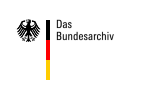 >>www.bundesarchiv.de It is the concern of every cultured nation to maintain, care for, make accessible to the public and continually supplement its stock of moving pictures. The Federal Republic of Germany primarily fulfils this responsibility through the Federal Archives. The Federal Film Archive in Berlin is one of the largest archives of its kind in the world.
>>www.bundesarchiv.de It is the concern of every cultured nation to maintain, care for, make accessible to the public and continually supplement its stock of moving pictures. The Federal Republic of Germany primarily fulfils this responsibility through the Federal Archives. The Federal Film Archive in Berlin is one of the largest archives of its kind in the world.
 >> www.cinecitta.com Cinecittà Luce er et offentlig selskap som fungerer som den operative delen av kulturdepartementet for den italienske filmindustrien. Selskapet er et resultat av sammenslåingen av Cinecittà Holding og Istituto Luce, sistnevnte ble grunnlagt i 1924 og er det første statlige filmselskapet i Europa.
>> www.cinecitta.com Cinecittà Luce er et offentlig selskap som fungerer som den operative delen av kulturdepartementet for den italienske filmindustrien. Selskapet er et resultat av sammenslåingen av Cinecittà Holding og Istituto Luce, sistnevnte ble grunnlagt i 1924 og er det første statlige filmselskapet i Europa.
![]() >>www.cinemateca.pt Cinemateca Portuguesa- Museu do Cinema, I.P. er det nasjonale filmmuseet i Portugal, en statlig institusjon som er viet bevaring og formidling av den portugisiske og internasjonale filmarven. Det ble grunnlagt tidlig på 1950-tallet av filmpioneren Manuel Félix Ribeiro, og ble en autonom institusjon i 1980.
>>www.cinemateca.pt Cinemateca Portuguesa- Museu do Cinema, I.P. er det nasjonale filmmuseet i Portugal, en statlig institusjon som er viet bevaring og formidling av den portugisiske og internasjonale filmarven. Det ble grunnlagt tidlig på 1950-tallet av filmpioneren Manuel Félix Ribeiro, og ble en autonom institusjon i 1980.
 >> www.cinematheque.fr La Cinémathèque française ble grunnlagt i 1936 av Henri Langlois, George Franju, Jean Mitry og Paul Auguste Harlé. Over tid har det utviklet seg til å bli et sentrum for filmkultur, og dets omfattende samling utgjør nå en av verdens mest berømte arkiv for levende bilder. Det er også et sted hvor flere generasjoner har oppdaget film.
>> www.cinematheque.fr La Cinémathèque française ble grunnlagt i 1936 av Henri Langlois, George Franju, Jean Mitry og Paul Auguste Harlé. Over tid har det utviklet seg til å bli et sentrum for filmkultur, og dets omfattende samling utgjør nå en av verdens mest berømte arkiv for levende bilder. Det er også et sted hvor flere generasjoner har oppdaget film.
>>www.cinematek.be The Cinémathèque Royale is one of the most important archives in Europe and in the world, due to its collections, its activities in exhibiting and distributing archival films across Europe, its role in the International associations of Archives (FIAF, ACE), its technical staff who has a history o
![]() >> www.cinetecadibologna.it Cineteca di Bologna er en kommunal institusjon som har som hovedoppdrag å preservere og utbre filmarven i så mange former og uttrykk som mulig. Det oppstod ut fra Bolognas filmkommisjon på 1960-tallet med utgangspunkt i den enkle tanken om å behandle vår kulturelle fortid som noe levende, og derfor også som noe med en fremtid. Siden den tid har idéen om å gjenvinne og gjenoppdage vår filmarv vært bakgrunn for beslutninger: undersøke kilder, opparbeide materialsamlinger, utvikle bevissthet og kyndighet knyttet til konservering og restaurering, trene personale i det som den gang var et ukjent felt, og bygge et nettverk for utveksling og knytte forbindelser.
>> www.cinetecadibologna.it Cineteca di Bologna er en kommunal institusjon som har som hovedoppdrag å preservere og utbre filmarven i så mange former og uttrykk som mulig. Det oppstod ut fra Bolognas filmkommisjon på 1960-tallet med utgangspunkt i den enkle tanken om å behandle vår kulturelle fortid som noe levende, og derfor også som noe med en fremtid. Siden den tid har idéen om å gjenvinne og gjenoppdage vår filmarv vært bakgrunn for beslutninger: undersøke kilder, opparbeide materialsamlinger, utvikle bevissthet og kyndighet knyttet til konservering og restaurering, trene personale i det som den gang var et ukjent felt, og bygge et nettverk for utveksling og knytte forbindelser.
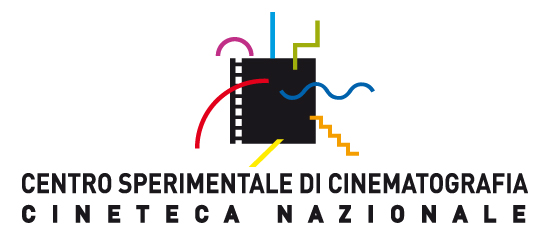 >>www.fondazionecsc.it The Cineteca Nazionale (National Film Archive), part of Centro Sperimentale di Cinematografia, one of the most important film archives in Europe, was instituted by State law in 1949 in order to preserve and propagate Italy's cinematographic heritage. The original nucleus of the collection was put together with the establishment of the Centro Sperimentale di Cinematografia in the 1930s, and it was used as a teaching aid.
>>www.fondazionecsc.it The Cineteca Nazionale (National Film Archive), part of Centro Sperimentale di Cinematografia, one of the most important film archives in Europe, was instituted by State law in 1949 in order to preserve and propagate Italy's cinematographic heritage. The original nucleus of the collection was put together with the establishment of the Centro Sperimentale di Cinematografia in the 1930s, and it was used as a teaching aid.
 >> www.dfi.dk Det danske filminstituttet er den nasjonale institusjonen som har som mandat å støtte og inspirere film og filmkultur, og for å konservere disse. DFI sin virksomhet strekker seg fra deltakelse i utvikling og produksjon av spillefilm, kortfilm, og dokumentarfilm, til distribusjon og markedsføring, og administrering av det nasjonale filmarkiv og cinematek.
>> www.dfi.dk Det danske filminstituttet er den nasjonale institusjonen som har som mandat å støtte og inspirere film og filmkultur, og for å konservere disse. DFI sin virksomhet strekker seg fra deltakelse i utvikling og produksjon av spillefilm, kortfilm, og dokumentarfilm, til distribusjon og markedsføring, og administrering av det nasjonale filmarkiv og cinematek.
![]() >> www.deutsche-kinemathek.de The task of the Deutsche Kinemathek – Museum für Film und Fernsehen is to collect, preserve, develop, present and mediate our audiovisual heritage. Since 2006, it remains the sole institution in Europe presenting both media together through its permanent exhibitions on film and television.
>> www.deutsche-kinemathek.de The task of the Deutsche Kinemathek – Museum für Film und Fernsehen is to collect, preserve, develop, present and mediate our audiovisual heritage. Since 2006, it remains the sole institution in Europe presenting both media together through its permanent exhibitions on film and television.
![]() >> www.deutsches-filminstitut.de Deutsches Filminstitut (DIF) ble grunnlagt i 1949, og er ikke bare den eldste filminstitusjonen i Tyskland, men også en av landets største. Siden innlemmelsen av Deutsches Filmmuseum, Frankfurt/Main i 2006, har DIF kunnet yte et eksepsjonelt variert tilbud og ekspertise innen film: fra å administrere arkivet med sine utallige samlinger som dekker alle aspekter ved film og filmkunst, til vitenskapelig analyse av materialet og offentlige visninger av materialet ved festivaler og utstillinger, eller via trykte og nettbaserte publikasjoner.
>> www.deutsches-filminstitut.de Deutsches Filminstitut (DIF) ble grunnlagt i 1949, og er ikke bare den eldste filminstitusjonen i Tyskland, men også en av landets største. Siden innlemmelsen av Deutsches Filmmuseum, Frankfurt/Main i 2006, har DIF kunnet yte et eksepsjonelt variert tilbud og ekspertise innen film: fra å administrere arkivet med sine utallige samlinger som dekker alle aspekter ved film og filmkunst, til vitenskapelig analyse av materialet og offentlige visninger av materialet ved festivaler og utstillinger, eller via trykte og nettbaserte publikasjoner.
 >> www.filmi.arhiiv.ee The main task of the Estonian Film Archives, according to the Act of Archives, is to collect, preserve and provide access to the national film, photo and audio heritage. Collecting and preserving film heritage started in 1935. After the II WW governing the archival matters was directed to Moscow. Access to most of the pre-war films was restricted (the first film of Estonian origin was released in 1912).
>> www.filmi.arhiiv.ee The main task of the Estonian Film Archives, according to the Act of Archives, is to collect, preserve and provide access to the national film, photo and audio heritage. Collecting and preserving film heritage started in 1935. After the II WW governing the archival matters was directed to Moscow. Access to most of the pre-war films was restricted (the first film of Estonian origin was released in 1912).
 >> www.eyefilm.nl EYE Film Instituut Nederland er en institusjon som fremmer den nederlandske, nasjonale filmkulturen. Det forvalter en stor fremragende, internasjonal samling av film, foto, og filmplakater, som gjenspeiler de viktigste aspektene ved filmhistorien. Mange deler av samlingen er helt unike i verdenssammenheng.
>> www.eyefilm.nl EYE Film Instituut Nederland er en institusjon som fremmer den nederlandske, nasjonale filmkulturen. Det forvalter en stor fremragende, internasjonal samling av film, foto, og filmplakater, som gjenspeiler de viktigste aspektene ved filmhistorien. Mange deler av samlingen er helt unike i verdenssammenheng.
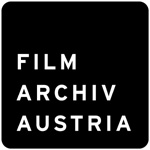 >> http://filmarchiv.at Filmarchiv Austria er det sentrale stedet for filmsamlinger og filmdokumentasjon i Østerrike, og huser landets audiovisuelle kulturarv. De forskjellige samlingene i arkivet omfatter en periode på mer enn hundre år, som strekker seg fra det 19. århundre frem til i dag. Filmarchiv Austria har mer enn 100.000 filmruller, 2 000 000 fotografier og stillbilder, og cirka 25,000 filmprogram samt utallige andre gjenstander slik som plakater, bøker og dokumenter.
>> http://filmarchiv.at Filmarchiv Austria er det sentrale stedet for filmsamlinger og filmdokumentasjon i Østerrike, og huser landets audiovisuelle kulturarv. De forskjellige samlingene i arkivet omfatter en periode på mer enn hundre år, som strekker seg fra det 19. århundre frem til i dag. Filmarchiv Austria har mer enn 100.000 filmruller, 2 000 000 fotografier og stillbilder, og cirka 25,000 filmprogram samt utallige andre gjenstander slik som plakater, bøker og dokumenter.
![]() >> www.mcu.es Filmoteca Española is the Spanish national film archive under the direction of the Instituto de la Cinematografía y de las Artes Visuales (ICAA) of the Ministry of Education, Culture and Sports. The aims and activities of the Filmoteca Española are:
>> www.mcu.es Filmoteca Española is the Spanish national film archive under the direction of the Instituto de la Cinematografía y de las Artes Visuales (ICAA) of the Ministry of Education, Culture and Sports. The aims and activities of the Filmoteca Española are:
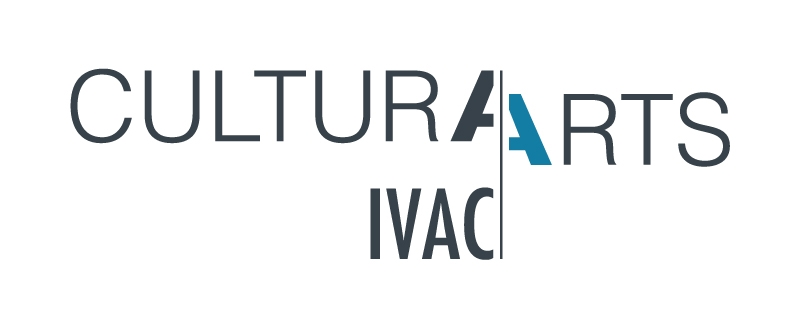
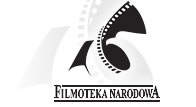 >> www.fn.org.pl The National Film Archive in Poland was created in 1955. From the beginning it belonged to The International Federation of Film Archives (FIAF), an association of the majority of film archives in the World. The collection of film reels and archival materials such as posters, photos, scripts assembled in Filmoteka Narodowa is one of the largest in Europe. With the help of few generation of archivists Filmoteka Narodowa retrieve 75% of Polish feature films from 1914 to 1939 rescued after the II World War.
>> www.fn.org.pl The National Film Archive in Poland was created in 1955. From the beginning it belonged to The International Federation of Film Archives (FIAF), an association of the majority of film archives in the World. The collection of film reels and archival materials such as posters, photos, scripts assembled in Filmoteka Narodowa is one of the largest in Europe. With the help of few generation of archivists Filmoteka Narodowa retrieve 75% of Polish feature films from 1914 to 1939 rescued after the II World War.
![]() >> www.cinetecamilano.it The Cineteca Italiana was officially founded in Milan in 1947. Its first nucleus was a small stock of cinema masterpieces rescued from destruction in the Thirties and adventurously preserved until after World War II by a group of young cinéphiles and intellectuals among whom there were the future directors Luigi Comencini and Alberto Lattuada.
>> www.cinetecamilano.it The Cineteca Italiana was officially founded in Milan in 1947. Its first nucleus was a small stock of cinema masterpieces rescued from destruction in the Thirties and adventurously preserved until after World War II by a group of young cinéphiles and intellectuals among whom there were the future directors Luigi Comencini and Alberto Lattuada.
 The Imperial War Museum was founded in 1917 to record the story of the Great War and the contributions made to it by the peoples of the Empire. An Act of Parliament formally established the Museum and its governing body, the Board of Trustees, in 1920, when the Museum opened in the Crystal Palace. From 1924 to 1935 the Museum was housed in two small galleries adjoining the Imperial Institute. In 1936 it was reopened in the central portion of the former Bethlem Royal Hospital in Lambeth Road, Southwark where it remains to this day.
The Imperial War Museum was founded in 1917 to record the story of the Great War and the contributions made to it by the peoples of the Empire. An Act of Parliament formally established the Museum and its governing body, the Board of Trustees, in 1920, when the Museum opened in the Crystal Palace. From 1924 to 1935 the Museum was housed in two small galleries adjoining the Imperial Institute. In 1936 it was reopened in the central portion of the former Bethlem Royal Hospital in Lambeth Road, Southwark where it remains to this day.
 >> www.kinoteka.org.rs Jugoslovenska Kinoteka (official title since 1952) or National Film Archive of Republic Serbia is the national film library of the Republic Serbia, founded in 1949. It consists of four organizational units: Film archive, Film museum – the cinema, The Library and General Services. Jugoslovenska Kinoteka is one of the founders and a permanent member of FIAF (International Federation of Film Archives). It takes part in the activities of FIAF since 1951. The heart of the institution is the Film Archive.
>> www.kinoteka.org.rs Jugoslovenska Kinoteka (official title since 1952) or National Film Archive of Republic Serbia is the national film library of the Republic Serbia, founded in 1949. It consists of four organizational units: Film archive, Film museum – the cinema, The Library and General Services. Jugoslovenska Kinoteka is one of the founders and a permanent member of FIAF (International Federation of Film Archives). It takes part in the activities of FIAF since 1951. The heart of the institution is the Film Archive.
![]() >> www.kava.fi Det finske filmarkivet ble grunnlagt i 1957 som en privat organisasjon. Det påfølgende året sluttet det seg til den internasjonale føderasjonen av filmarkiv (FIAF). I 1979 ble arkivet et offentlig organ underlagt Utdanningskabinettet. 1. Januar 2008 ble arkivets felt utvidet til å inkludere radio og fjernsyn. Samtidig ble et nytt navn tatt i bruk – Nasjonalt Audiovisuelt Arkiv.
>> www.kava.fi Det finske filmarkivet ble grunnlagt i 1957 som en privat organisasjon. Det påfølgende året sluttet det seg til den internasjonale føderasjonen av filmarkiv (FIAF). I 1979 ble arkivet et offentlig organ underlagt Utdanningskabinettet. 1. Januar 2008 ble arkivets felt utvidet til å inkludere radio og fjernsyn. Samtidig ble et nytt navn tatt i bruk – Nasjonalt Audiovisuelt Arkiv.
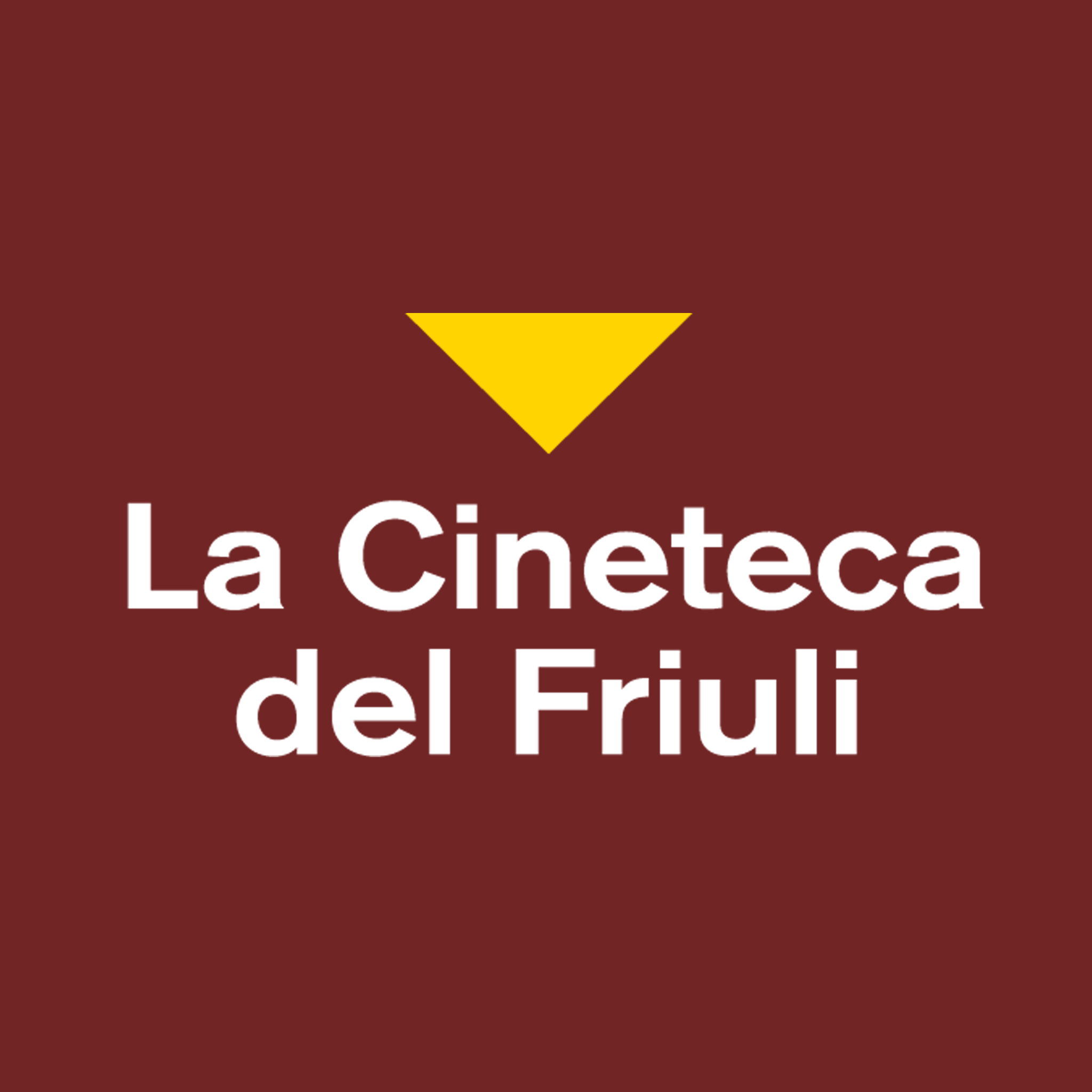 >> www.cinetecadelfriuli.org The Cineteca del Friuli was founded in Gemona in 1977, soon after the city was destroyed by the earthquake of May 1976, and is now one of the five major Italian film libraries. It joined the International Federation of Film Archives (FIAF) in 1989. The film archive began with a collection of films of historical interest and it has grown considerably over the years: it currently includes some 10,000 films in 35mm and 16mm, 50% fiction and 50% newsreels and documentaries. Small formats such as 17.5 mm, 9.5 mm, the 8mm and Super8 are also represented in about 500 copies.
>> www.cinetecadelfriuli.org The Cineteca del Friuli was founded in Gemona in 1977, soon after the city was destroyed by the earthquake of May 1976, and is now one of the five major Italian film libraries. It joined the International Federation of Film Archives (FIAF) in 1989. The film archive began with a collection of films of historical interest and it has grown considerably over the years: it currently includes some 10,000 films in 35mm and 16mm, 50% fiction and 50% newsreels and documentaries. Small formats such as 17.5 mm, 9.5 mm, the 8mm and Super8 are also represented in about 500 copies.
>> www.landesfilmsammlung-bw.de The Landesfilmsammlung Baden-Wuerttemberg (LFS) is the central film archive of the federal state of Baden-Wuerttemberg in Germany. It was established in 1998. The LFS collects films from and about Baden-Wuerttemberg. In addition it archives copies of films funded by the MFG Film Funding Organization. More than 8.500 films have been collected so far from communal, church, state and company archives as well as private collections, the major sources of the constantly growing collection. The oldest film reel dates back to 1904, the latest video file was recorded only last year.
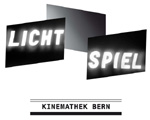 >> www.lichtspiel.ch I 2000 tok foreningen Lichtspiel over ansvaret for den utsatte filmsamlingen til filmteknikeren Walter A. Ritschard fra Bern. Siden den tid har komitmedlemmer ikke bare restaurert denne unike samlingen, og gjort den tilgjengelig for offentligheten, men også utviklet et regionalt cinematek, som er kontaktflaten for alle film- og kinoanliggender.
>> www.lichtspiel.ch I 2000 tok foreningen Lichtspiel over ansvaret for den utsatte filmsamlingen til filmteknikeren Walter A. Ritschard fra Bern. Siden den tid har komitmedlemmer ikke bare restaurert denne unike samlingen, og gjort den tilgjengelig for offentligheten, men også utviklet et regionalt cinematek, som er kontaktflaten for alle film- og kinoanliggender.
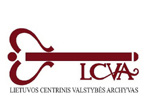 >> www.archyvai.lt Det litauiske statsarkivet er det største arkivet innen statsarkivssystemet. Hovedmålet er å samle og beskytte papirbaserte og audiovisuelle dokumenter for fremtidige generasjoner, og samtidig sørge for offentlighetens tilgang til samlingene.
>> www.archyvai.lt Det litauiske statsarkivet er det største arkivet innen statsarkivssystemet. Hovedmålet er å samle og beskytte papirbaserte og audiovisuelle dokumenter for fremtidige generasjoner, og samtidig sørge for offentlighetens tilgang til samlingene.
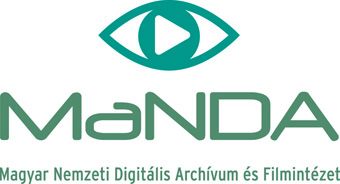 >> http://mandarchiv.hu/ Det ungarske instituttet for filmvitenskap ble grunnlagt i 1957. I 2000 skiftet det navn til Ungarsk Nasjonalt Filmarkiv, med status som en offentlig nasjonal samling. Arkivets funksjoner er samlingen, akkvisisjoner, bevaring, restaurering, visninger og profesjonelt lager for ungarsk spillefilm, dokumentarfilm, reportasjefilm, animasjonsfilm, populærvitenskapelige filmer og klassikere fra hele verden.
>> http://mandarchiv.hu/ Det ungarske instituttet for filmvitenskap ble grunnlagt i 1957. I 2000 skiftet det navn til Ungarsk Nasjonalt Filmarkiv, med status som en offentlig nasjonal samling. Arkivets funksjoner er samlingen, akkvisisjoner, bevaring, restaurering, visninger og profesjonelt lager for ungarsk spillefilm, dokumentarfilm, reportasjefilm, animasjonsfilm, populærvitenskapelige filmer og klassikere fra hele verden.
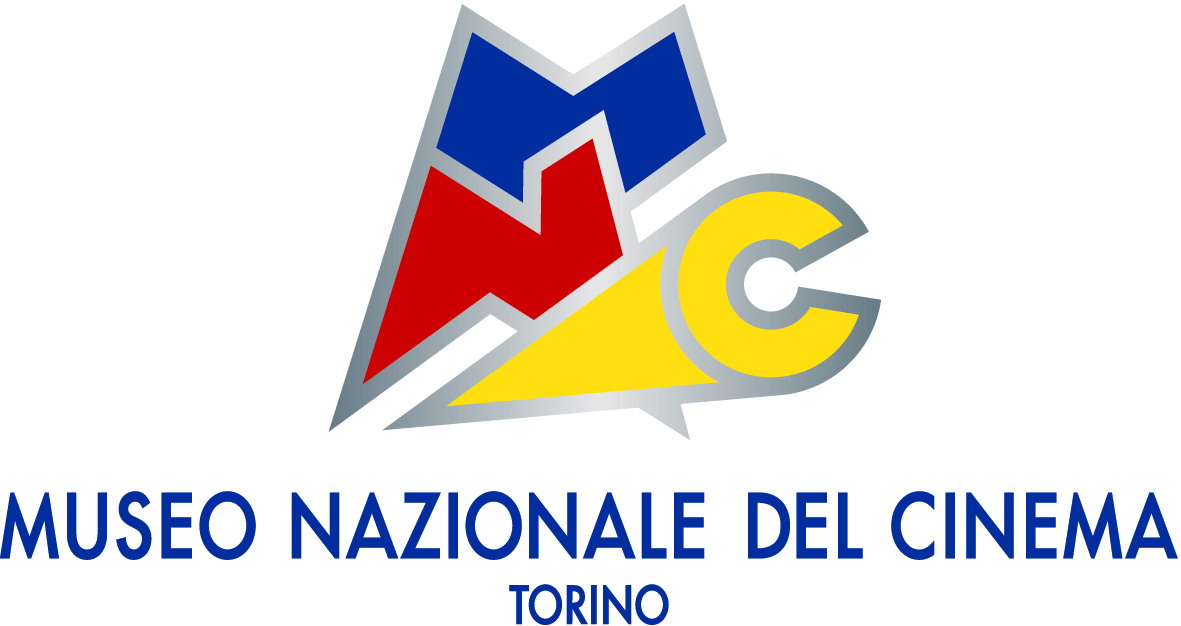 >>www.museocinema.it Unique in Italy and among the most important worldwide, the Museo Nazionale del Cinema (or National Cinema Museum) is hosted within the Mole Antonelliana in Turin, the symbol of the city. Inaugurated in July 2000, it has seen over 6,500,000 visitors (568,000 only in 2012) in 13 years, becoming one of the most visited museums in Turin and in Piedmont and garnering much acclaim at an international level; a remarkable goal for a very particular museum, which proposes to charm its visitors by drawing them into the enchanting world of the Seventh Art.
>>www.museocinema.it Unique in Italy and among the most important worldwide, the Museo Nazionale del Cinema (or National Cinema Museum) is hosted within the Mole Antonelliana in Turin, the symbol of the city. Inaugurated in July 2000, it has seen over 6,500,000 visitors (568,000 only in 2012) in 13 years, becoming one of the most visited museums in Turin and in Piedmont and garnering much acclaim at an international level; a remarkable goal for a very particular museum, which proposes to charm its visitors by drawing them into the enchanting world of the Seventh Art.
 >> www.nfa.cz Filmarkivet i Praha ble grunnlagt i 1943 av det tsjekkisk-moraviske filmsenteret, for å beskytte filmmateriale mot krigshandlinger. I 1946 ble det medlem av den internasjonale føderasjonen av filmarkiv (FIAF). Som en del av det tidligere tsjekkoslovakiske filminstituttet, ble arkivet omdannet til det uavhengige nasjonalt Filmarkiv (NFA) etter bestemmelse fra kulturministeren i 1992. I dag er NFA blant de viktigste nasjonale kulturinstitusjonene i Tsjekkia, og et av de største filmarkiv i verden.
>> www.nfa.cz Filmarkivet i Praha ble grunnlagt i 1943 av det tsjekkisk-moraviske filmsenteret, for å beskytte filmmateriale mot krigshandlinger. I 1946 ble det medlem av den internasjonale føderasjonen av filmarkiv (FIAF). Som en del av det tidligere tsjekkoslovakiske filminstituttet, ble arkivet omdannet til det uavhengige nasjonalt Filmarkiv (NFA) etter bestemmelse fra kulturministeren i 1992. I dag er NFA blant de viktigste nasjonale kulturinstitusjonene i Tsjekkia, og et av de største filmarkiv i verden.
![]() >> www.nb.no Nasjonalbiblioteket i Norge er ansvarlig for å samle inn, bevare og restaurere den norske filmarven slik at den er tilgjengelig for forskning og dokumentasjon. Samlingene inkluderer mer enn 21 000 titler av ulikt format, ulike genre og opprinnelse.
>> www.nb.no Nasjonalbiblioteket i Norge er ansvarlig for å samle inn, bevare og restaurere den norske filmarven slik at den er tilgjengelig for forskning og dokumentasjon. Samlingene inkluderer mer enn 21 000 titler av ulikt format, ulike genre og opprinnelse.
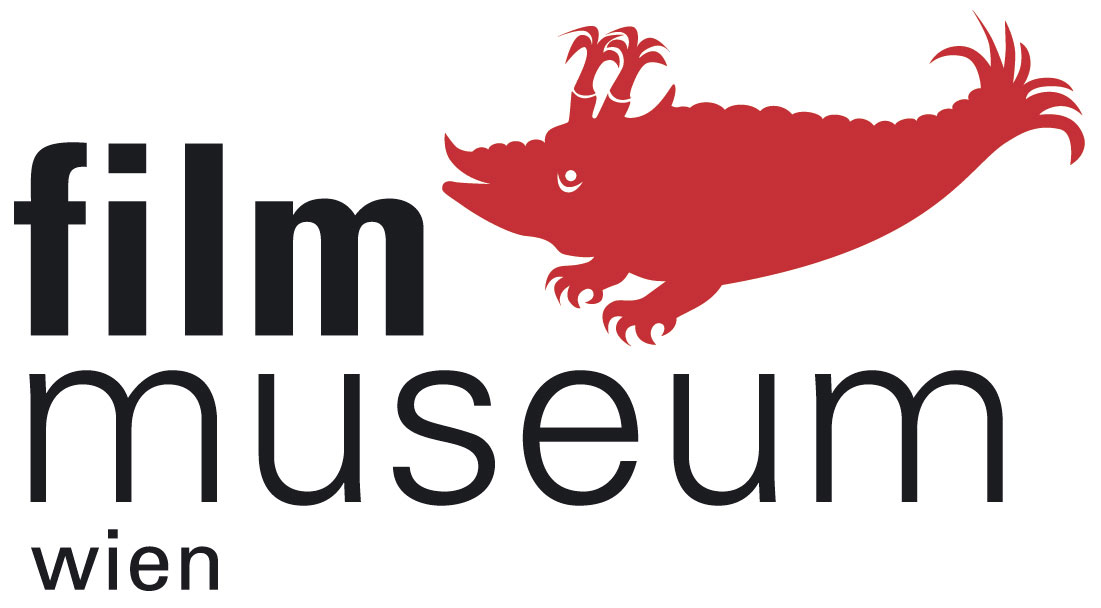 >> www.filmmuseum.at Österreichisches Filmmuseum (Austrian Film Museum / OeFM) is a specific exhibition space (film as a time-based event, the experience of a performative act), a collection site and archive (film as an artefact, as local and global memory), a research and study centre, as well as a place for public debate and reflection (film as a nodal point of discourse on culture and society).
>> www.filmmuseum.at Österreichisches Filmmuseum (Austrian Film Museum / OeFM) is a specific exhibition space (film as a time-based event, the experience of a performative act), a collection site and archive (film as an artefact, as local and global memory), a research and study centre, as well as a place for public debate and reflection (film as a nodal point of discourse on culture and society).
![]() >> ssa.nls.uk
>> ssa.nls.uk
The Scottish Screen Archive is a film and video collection of over 100 years of Scotland's history. The archive reflects 20th-century Scottish social, cultural and industrial history, the lives of ordinary Scots across the generations and the achievements of Scottish film-makers in the craft of film production. It joined the National Library of Scotland in 2007.
 >> www.sfi.se The Swedish Film Institute works to promote film across the board – from idea to finished product, during launch in Sweden and around the world, and by preserving films for posterity in our archives. It was founded in 1963 by the Swedish state and the various professional bodies of the film industry.
>> www.sfi.se The Swedish Film Institute works to promote film across the board – from idea to finished product, during launch in Sweden and around the world, and by preserving films for posterity in our archives. It was founded in 1963 by the Swedish state and the various professional bodies of the film industry.
.jpg) >> www.tainiothiki.gr Det greske filmarkivet fikk sin oppstart i 1950 ved filmkritikerforeningen I Aten. I 1963 ble en stiftelse ved navnet “Film Archives of Greece – Greek Film Archive” offisielt etablert etter kongelig resolusjon (105/1963). Siden 1983 har det greske filmarkivet vært medlem av den internasjonale føderasjonen av filmarkiv (FIAF). Det greske filmarkivet er registrert som en non-profit kulturorganisasjon, og mottar årlig støtte fra det greske kulturdepartementet.
>> www.tainiothiki.gr Det greske filmarkivet fikk sin oppstart i 1950 ved filmkritikerforeningen I Aten. I 1963 ble en stiftelse ved navnet “Film Archives of Greece – Greek Film Archive” offisielt etablert etter kongelig resolusjon (105/1963). Siden 1983 har det greske filmarkivet vært medlem av den internasjonale føderasjonen av filmarkiv (FIAF). Det greske filmarkivet er registrert som en non-profit kulturorganisasjon, og mottar årlig støtte fra det greske kulturdepartementet.
Arkivet inneholder det største og viktigste filmsamlingen i Hellas, med 10,000 utenlandske og mer enn 2.500 greske titler, i tillegg til en samling med før-kinematografiske apparater, magiske lanterner, og ulike typer kameraer og kamerautstyr. Det inneholder også 7000 fotografier fra greske filmer, og 10000 fra utenlandsk film, cirka 5000 stillbilder og programblader, og omlag 800 greske og 1500 utenlandske filmplakater. Arkivets bibliotek har en stor samling med utgåtte boktitler, programkataloger og tidsskrifter som er tilgjengelige for publikum.
 Deutsch
Deutsch English
English Čeština
Čeština Dansk
Dansk Français
Français Italiano
Italiano Lietuvių
Lietuvių Magyar
Magyar Nederlands
Nederlands Norsk
Norsk Português
Português Suomi
Suomi